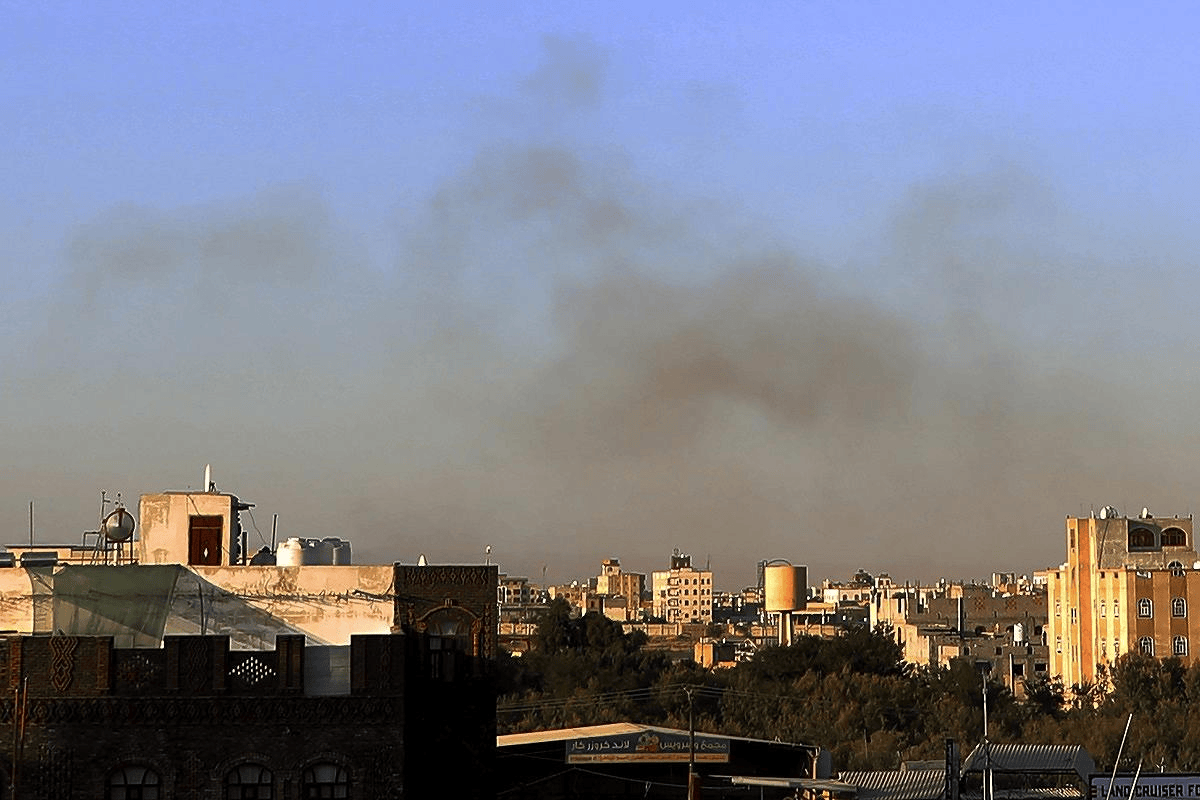On Thursday, Israeli airstrikes targeted Yemen’s main airport during a critical moment when a civilian Airbus 320 was landing and a U.N. delegation was waiting to depart. The U.N.’s top humanitarian official in Yemen, Julien Harneis, described the situation as highly dangerous, with one of the airstrikes destroying the airport’s control tower just as a Yemenia Airways plane was taxiing after landing. Although the plane was able to land safely, the potential for disaster was significant, as Harneis and others in the VIP lounge at the time were only narrowly spared from harm.
The strikes hit the airport at approximately 4:45 p.m., one about 300 meters south of the VIP lounge and another 300 meters to the north, as members of the U.N. team were outside the building. Harneis noted that the airstrikes were unexpected, as it had been a long time since such attacks occurred during daylight in Sanaa. The impact of the strikes resulted in at least three fatalities and dozens of injuries, including a serious leg injury to a crew member from the U.N. Humanitarian Air Service.

Israeli Airstrikes Target Yemen Airport During Civilian Plane Landing, Striking U.N. Delegation’s Safety
After the airstrikes, the U.N. security team quickly moved the delegation into armored vehicles for protection and spent approximately 40 minutes assessing the situation and attending to the injured crew member. The wounded individual was taken to a hospital in Sanaa for emergency surgery, while the rest of the delegation remained in a U.N. compound overnight. The following day, the U.N. team, including the injured crew member, was able to depart for Jordan, though the airport’s control tower was no longer operational.
Israel’s military, which carried out the airstrikes, stated that it was unaware of the presence of the U.N. delegation at the time of the attack. The Israeli military explained that the airstrikes were aimed at the airport because it is used by Houthi rebels and Iranian forces. Harneis, however, emphasized that the airport is primarily civilian, serving humanitarian operations and a single commercial flight route to Jordan, which is crucial for Yemenis seeking medical treatment abroad. He stressed that the attacks had disrupted essential services for the country’s civilian population.
The broader context of the attack is Yemen’s ongoing civil war, which has resulted in widespread suffering. The conflict, between the Iran-backed Houthi rebels and the internationally recognized government, has left millions of Yemenis dependent on humanitarian aid. Harneis reported that 18 million Yemenis, almost half the population, are in need of assistance, with this number expected to rise in 2024.
In addition to the airport strikes, Israel has been targeting Hodeida, Yemen’s main port, which handles vital imports for the country, including food and medical supplies. The recent destruction of tugboats at Hodeida has reduced its capacity by 50%, exacerbating the country’s already dire humanitarian crisis.
